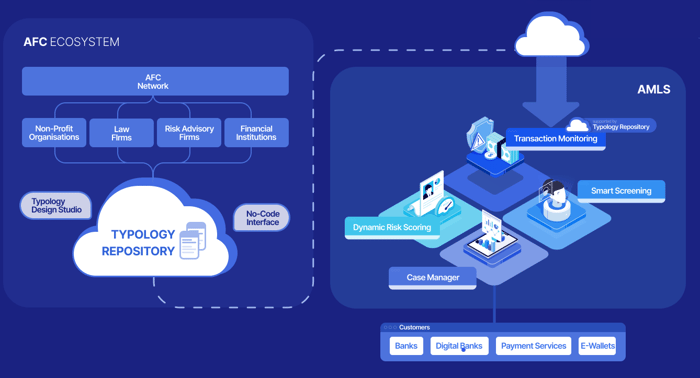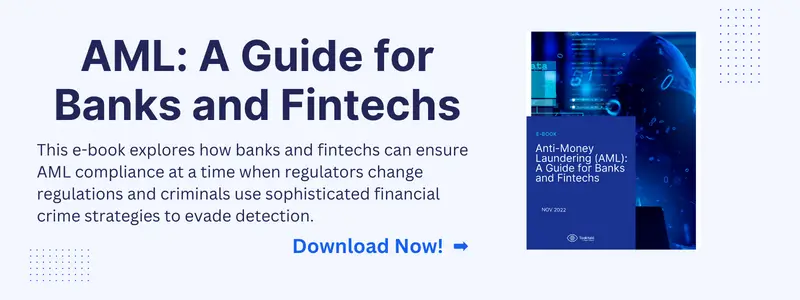Over the past few years, digital banking has experienced rapid growth in Malaysia, transforming the financial landscape in the country. The widespread adoption of smartphones, improved internet connectivity, and changing consumer preferences have driven the demand for convenient and secure digital financial services. This shift towards digital banking has encouraged both established financial institutions and fintech startups to develop innovative products and services that cater to the evolving needs of consumers and businesses.
As digital banking continues to expand, the risk of money laundering and terrorist financing activities also increases. Criminals often exploit digital platforms to launder money, finance terrorism, and carry out other illicit activities. Consequently, it becomes crucial for financial institutions to maintain robust anti-money laundering (AML) and counter-terrorism financing (CFT) compliance programs to mitigate these risks. Ensuring AML compliance protects financial institutions from potential financial losses and reputational damage and helps maintain the financial system's overall integrity.
Tookitaki is a leading provider of innovative AML compliance solutions designed to help financial institutions effectively combat money laundering and terrorist financing. Leveraging advanced analytics, machine learning, and a deep understanding of AML typologies, Tookitaki's Anti-Money Laundering (AML) Suite offers a comprehensive and scalable approach to detecting, preventing, and managing financial crime risks. In this blog, we will explore how Tookitaki's AML Suite can assist Malaysian financial institutions in achieving AML compliance as they navigate the rapidly evolving digital banking landscape.
Overview of Digital Banking in Malaysia
Digital banking in Malaysia has experienced significant growth in recent years due to various factors, such as increased smartphone adoption, improved internet connectivity, and changing consumer preferences. This growth has led established financial institutions and fintech startups to develop innovative products and services to cater to the evolving needs of consumers and businesses.
Bank Negara Malaysia (BNM), the country's central bank, issued the Policy Document on Licensing Framework for Digital Banks in December 2020, marking the beginning of digital banking in Malaysia. According to BNM, digital banks must comply with the requirements under the Financial Services Act 2013 or Islamic Financial Services Act 2013, including standards on anti-money laundering and terrorism financing.
Digital banks in Malaysia aim to serve various segments of the population, such as the bottom 40% income group (B40), micro, small, and medium enterprises (MSMEs). They can offer better accessibility to rural areas and serve gig workers, who may also benefit from these services.
AML Challenges in Digital Banking
Digital banking faces several AML challenges due to the increased risk of financial crime and evolving cybercrime techniques. These challenges include:
Increased risk of money laundering and terrorist financing
The growth of digital payments and banking services has increased the risk of financial crimes, such as money laundering and terrorist financing. As more transactions take place online, criminals may exploit digital channels to launder illicit funds or finance terrorist activities. Financial institutions must be vigilant in detecting and preventing these activities to protect their customers and maintain the financial system's integrity. They must implement robust AML/CFT frameworks and risk mitigants to prevent illicit exploitation of access to their services.
Evolving cybercrime techniques
As digital banking becomes more popular, financial institutions face escalating threats due to technological developments in cybercrime. Cybercriminals constantly adapt their techniques to exploit vulnerabilities in digital banking systems, making it crucial for financial institutions to stay ahead of these threats and invest in advanced cybersecurity measures. Some common tactics include phishing, malware attacks, and social engineering, which can all be used to gain unauthorized access to customer accounts or manipulate transactions. Cybercrime and money laundering are correlated, as the former can be a predicate offence.
Expanding volumes of data
Financial institutions face challenges in handling the volume and breadth of data associated with AML compliance. Harnessing the value of this data is crucial for identifying and mitigating risks, requiring the adoption of advanced technologies and analytics.
Balancing customer experience with compliance
One of the key challenges in digital banking is striking the right balance between providing a seamless customer experience and maintaining robust AML/CFT controls. While customers expect fast, convenient, and secure access to their accounts and services, financial institutions must also ensure they meet regulatory requirements and mitigate risks associated with money laundering and terrorist financing.
To achieve this balance, financial institutions should consider adopting innovative technologies and solutions that enhance their AML/CFT capabilities without compromising the customer experience. This may include using artificial intelligence, machine learning, and data analytics to identify suspicious activities and patterns more effectively and efficiently. By staying proactive in addressing AML/CFT challenges, digital banks can maintain customer trust and contribute to a safer financial ecosystem.
Aligning with Malaysia's AML Regulations and International Standards
Adhering to BNM's guidelines
BNM is the central authority responsible for issuing AML/CFT regulations in the country. Digital banks must strictly adhere to these guidelines to maintain their license and operate legally. This includes implementing robust AML/CFT frameworks, customer due diligence measures, risk assessments, and ongoing transaction monitoring. By complying with BNM's guidelines, digital banks can contribute to Malaysia's financial system's overall stability and integrity while protecting themselves from legal and reputational risks.
Complying with FATF recommendations
The Financial Action Task Force (FATF) is an international organization that sets global standards for combating money laundering, terrorist financing, and other related threats. Digital banks in Malaysia must comply with the FATF's 40 Recommendations, which provide a comprehensive and consistent framework for AML/CFT compliance. By aligning with these recommendations, digital banks can demonstrate their commitment to international best practices, enhancing their credibility and reputation among customers, regulators, and other stakeholders.
Supporting global initiatives for AML/CFT
In addition to complying with local and international regulations, digital banks should actively support and participate in global initiatives to combat money laundering and terrorist financing. This may involve collaborating with other financial institutions, regulators, law enforcement agencies, and international organizations to share information, develop best practices, and coordinate efforts to tackle financial crime. By contributing to global AML/CFT initiatives, digital banks can play a vital role in strengthening the resilience of the global financial system and fostering a safer, more transparent environment for digital banking customers.
Tookitaki's Solution for AML Compliance in Digital Banking
Founded in 2015, Tookitaki aims to create safer societies by tackling the root cause of money laundering. As a global leader in financial crime prevention software, the company revolutionises the fight against financial crime by breaking the siloed AML approach and connecting the community through its two distinct platforms: the Anti-Money Laundering (AML) Suite and the Anti-Financial Crime (AFC) Ecosystem. Tookitaki's unique community-based approach empowers financial institutions to effectively detect, prevent, and combat money laundering and related criminal activities, resulting in a sustainable AML program with holistic risk coverage, sharper detection, and fewer false alerts.
The AML Suite is an end-to-end operating system that modernises compliance processes for banks and fintechs. In parallel, the AFC Ecosystem serves as a community of experts dedicated to uncovering hidden money trails that traditional methods cannot detect. Powered by federated machine learning, the AML Suite collaborates with the AFC Ecosystem to ensure that financial institutions stay ahead of the curve in their AML programs.
The AMLS includes several modules such as Transaction Monitoring, Smart Screening, Dynamic Risk Scoring, and Case Manager. These modules work together to provide a comprehensive compliance solution that covers all aspects of AML, including detection, investigation, and reporting.

Advancing Malaysia's Digital Banking Sector: AML Compliance and Tookitaki's Pivotal Role
The digital banking landscape in Malaysia is expected to grow significantly in the coming years, driven by technological advancements, changing consumer preferences, and supportive regulatory frameworks. As the industry evolves, financial institutions must adapt to the dynamic environment by enhancing their digital offerings, improving operational efficiency, and ensuring robust AML/CFT compliance to safeguard their customers and the wider financial system.
Tookitaki will continue to play a crucial role in helping Malaysian digital banks navigate the complexities of AML compliance. By providing cutting-edge AML solutions that leverage advanced technologies, such as artificial intelligence and machine learning, Tookitaki will enable financial institutions to streamline their compliance processes, identify and mitigate risks more effectively, and stay ahead of the ever-changing regulatory landscape.
As the digital banking sector in Malaysia continues to grow, it is more important than ever for financial institutions to prioritize AML/CFT compliance. Don't miss the opportunity to safeguard your business and customers with Tookitaki's innovative AML Suite. Book a demo today to experience firsthand how our comprehensive AML solutions can help your organization navigate the evolving digital banking landscape and achieve regulatory compliance with confidence.
Anti-Financial Crime Compliance with Tookitaki?





